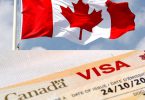Are you planning to move to Belgium for better opportunities, a quality life, or to reunite with family? Belgium, the heart of Europe, is a popular destination for immigrants due to its strong economy, high standard of living, and cultural diversity. If you’re wondering about the Belgium visa process for immigrants, this comprehensive guide is designed to walk you through every step of the journey.
Why Choose Belgium?
Belgium offers a unique blend of historic charm and modern amenities. Known for its multilingual society, world-class healthcare, prestigious universities, and robust social security system, Belgium is an attractive destination for people looking for a better future.
Moreover, living in Belgium means easy access to other European countries, as it is centrally located in the EU.
Key Benefits of Moving to Belgium:
- High-quality healthcare system
- Strong job market in sectors like IT, engineering, healthcare, and logistics
- Top-tier education system
- Rich cultural diversity
- Safe and stable political environment
Types of Belgium Visas for Immigrants
Before you can pack your bags, it’s important to understand the different visa options available for immigrants:
1. Work Visa
If you have secured a job in Belgium, you will need a work visa. Belgian employers typically initiate the visa process by applying for a work permit on your behalf.
Types of Work Permits:
- Type B: For a specific employer and job
- Type A: For long-term residents after holding Type B for four years
- Type C: For temporary residents (students, asylum seekers)
Tip: Occupations in demand such as IT professionals, healthcare workers, and engineers have a faster approval process.
2. Student Visa
Belgium is home to several prestigious universities like KU Leuven and Ghent University. If you are planning to study, you must apply for a student visa (Type D Visa).
3. Family Reunification Visa
If you have family members legally residing in Belgium, you can apply for a family reunification visa to join them.
4. Entrepreneur/Investor Visa
For those wanting to start a business or invest in Belgium, an entrepreneur visa is available. This requires a solid business plan and financial proof of your ability to sustain yourself.
Belgium Visa Requirements for Immigrants
While the specific requirements vary depending on the type of visa, some general documents needed for a Belgium visa include:
- A valid passport
- Completed visa application form
- Passport-size photographs
- Proof of accommodation
- Proof of financial means
- Health insurance
- Police clearance certificate (for long stays)
- Employment contract or admission letter (for work and study visas)
- Language proficiency proof (Dutch, French, or German, depending on the region)
Note: Always check with the Belgian embassy or consulate in your home country for updated requirements.
Step-by-Step Belgium Immigration Process
Navigating the immigration system can be tricky. Here’s a simplified step-by-step guide:
Step 1: Determine Visa Type
First, identify the correct visa type based on your reason for moving (work, study, family, investment).
Step 2: Prepare Your Documents
Gather all necessary documentation. Double-check that everything is up-to-date and meets embassy requirements.
Step 3: Apply at Belgian Embassy/Consulate
Submit your application at the nearest Belgian embassy or consulate. Some countries allow online pre-registration.
Step 4: Pay the Visa Fees
Visa processing fees vary:
- Short-stay visa (up to 90 days): Around €80
- Long-stay visa: Around €180 (plus administrative fees)
Step 5: Attend the Visa Interview
Be prepared for an interview where you must explain your purpose for moving to Belgium.
Step 6: Wait for Processing
Visa processing time can range from a few weeks to three months depending on your country of origin and visa type.
Step 7: Receive Visa Decision
If approved, you will receive a visa sticker in your passport. If rejected, you can appeal or reapply.
Tips to Increase Your Chances of Visa Approval
- Provide genuine, verifiable documents.
- Demonstrate sufficient financial means.
- Secure your accommodation beforehand.
- Get a job offer from a reputed employer (for work visa).
- Prepare for your interview with clear, concise answers.
What Happens After You Arrive in Belgium?
Once you enter Belgium:
- Register at the Local Municipality: Within 8 days of arrival.
- Get a Residence Permit: This is critical for legal stay beyond your visa’s validity.
- Open a Belgian Bank Account: Essential for transactions and salary deposits.
- Apply for Health Insurance: Health coverage is mandatory for all residents.
Common Challenges for New Immigrants in Belgium
Moving to a new country comes with challenges. Some hurdles immigrants face include:
- Language barriers (Belgium has Dutch, French, and German regions)
- Finding affordable housing
- Adapting to new work culture
- Understanding Belgium’s complex bureaucracy
Pro Tip: Learning basic Dutch or French can ease your integration significantly.
Frequently Asked Questions (FAQs)
Can I work in Belgium while studying?
Yes, students can work up to 20 hours per week during term time with a valid student work permit.
How long does it take to get Belgian citizenship?
Typically, you can apply for Belgian citizenship after five years of uninterrupted legal residence.
Is Belgium immigrant-friendly?
Absolutely. Belgium has strong anti-discrimination laws and offers support programs to help immigrants integrate.
Cost of Living in Belgium for Immigrants
Before relocating, it’s important to understand the cost of living in Belgium. Compared to other Western European countries, Belgium offers a relatively affordable lifestyle, especially outside major cities like Brussels and Antwerp. On average:
- Rent for a one-bedroom apartment in the city center: €800–€1,200 per month
- Utilities (electricity, heating, cooling, water, garbage): around €150 per month
- Groceries for a single person: approximately €250–€350 per month
- Public Transport Pass: about €50 per month
Budgeting wisely and securing a steady income are essential steps toward a successful start to your new life in Belgium.
Conclusion: Make Belgium Your New Home
Belgium is not just a gateway to Europe; it’s a country rich in opportunity, culture, and history. Whether you are moving for work, study, family, or business, understanding the Belgium visa process for immigrants is your first step to starting a new chapter in your life.
Plan ahead, gather all the necessary documents, and stay informed about the latest visa policies.
With the right preparation, your journey to Belgium can be smooth and rewarding!


